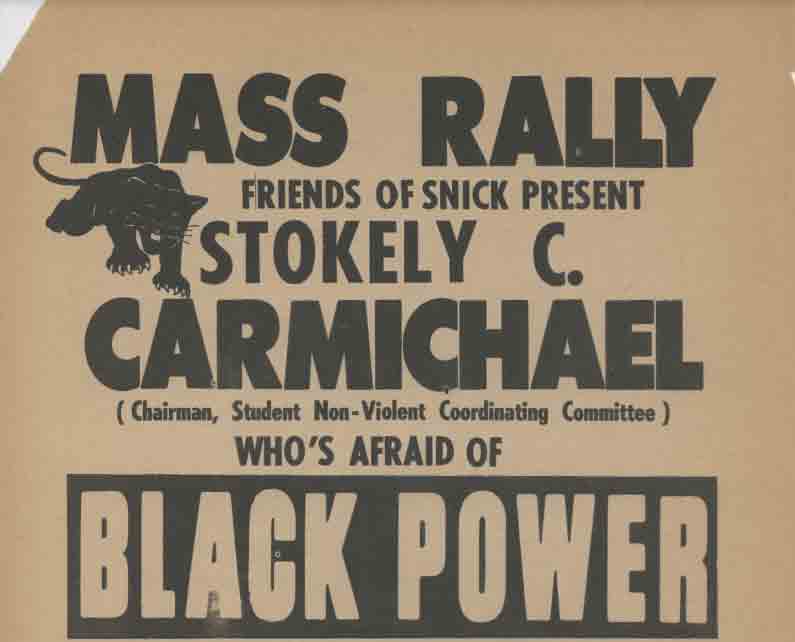
Kwame Ture
Share
Stokely Carmichael was born in Port of Spain, Trinidad and Tobago and grew up in New York City. He attended Howard University, where he became involved with student protest groups, including the Student Nonviolent Coordinating Committee (SNCC), and the Congress of Racial Equality (CORE) which organized the Freedom Rides in 1961. Carmichael participated in the Freedom Rides in an attempt to integrate a train and cafeteria in Jackson, Mississippi.

|
During Freedom Summer, Stokely Carmichael became a full time organizer for SNCC in Mississippi. He also worked closely with Gloria Richardson while she led the Cambridge Movement in Maryland. In 1965, Carmichael worked with the Lowndes County Freedom Organization (LCFO) in Alabama to support African American political candidates and register previously disenfranchised voters. The LCFO believed in armed self-defense and black political power. The following year, Carmichael succeeded John Lewis as the chairman of SNCC, and guided the organization towards a more militant and pan-African stance. It was during the March Against Fear that Stokely Carmichael gave the first Black Power speech at a rally in Greenwood, MS, intoning: "We been saying ‘freedom’ for six years. What we are going to start saying now is ‘Black Power.'”
In 1967, Carmichael stepped down as SNCC Chairman and was replaced by H. Rap Brown. Throughout his activism and with the rise of the Black Power movement, Stokely Carmichael became a target of the COINTELPRO efforts of J. Edgar Hoover and the FBI. After stepping down as SNCC Chairman, he published Black Power: The Politics of Liberation (1967), and became more aligned with the Black Panthers. Carmichael changed his name to Kwame Ture to honor his patrons Kwame Nkrumah and Sekou Toure, and moved to Guinea. He helped form the All-African People’s Revolutionary Party in 1972 and urged African American radicals to work for African liberation and Pan-Africanism. For the remainder of his life, Ture devoted much of his energy to the All-African People's Revolutionary Party.
Sources:


